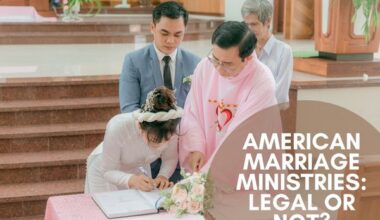The Couples Match Residency is a specialized program within the medical residency application process that allows two individuals who are in a committed relationship, often spouses or partners, to coordinate and align their residency placements at the same institution or within the same geographic area. This unique matching system recognizes the challenges faced by medical professionals in dual relationships and aims to support their personal and professional goals simultaneously.
What Is Couples Match Residency?
The Couples Match Residency is an initiative that recognizes the challenges faced by medical professionals who are in committed relationships. It aims to ensure that couples can pursue their careers while maintaining their personal lives. This program allows couples to increase their chances of matching at institutions near each other, promoting harmony in their professional and personal spheres.
Benefits Of Couples Match Residency
The couples match residency process, also known as the National Resident Matching Program (NRMP) Couples Match, allows couples in a committed relationship who are pursuing medical residency to coordinate their applications and increase their chances of being placed in the same geographic location or within close proximity to each other. Here are 10 benefits of participating in the couples match residency:
1. Geographic Proximity
The primary advantage of couples matching is the increased likelihood of being placed in the same city or within close proximity to each other. This allows couples to live together and maintain their relationship while pursuing their medical careers.
2. Emotional Support
Being in the same geographic location during the demanding residency years provides emotional support and understanding. Couples can lean on each other for support, share their experiences, and navigate the challenges of residency together.
3. Reduced Stress
The couples match reduces the stress and uncertainty associated with potentially being placed in different locations. It eliminates the need for couples to negotiate separate residency programs or make difficult decisions about whether to be apart during residency.
4. Improved Work-Life Balance
Being in the same location allows couples to better balance their personal and professional lives. They can support each other in managing their schedules, share responsibilities, and make time for shared activities and relaxation.
5. Enhanced Communication
Living in close proximity facilitates easier communication between partners. Couples can spend more quality time together, have face-to-face conversations, and maintain a stronger connection despite the demands of residency.
6. Financial Benefits
Sharing living expenses can help alleviate financial burdens during residency. Couples can split rent, utilities, and other costs, making it easier to manage their finances during this challenging period.
7. Networking Opportunities
Being in the same location increases networking opportunities for both partners. They can attend events, conferences, and social gatherings together, expanding their professional networks and potentially benefiting each other’s careers.
8. Collaborative Learning
Couples in the same residency program or nearby programs can collaborate and learn from each other. They can discuss cases, share knowledge, and offer support during their medical training, enhancing their educational experience.
9. Career Advancement
Being in the same location allows couples to support each other’s career advancement. They can attend conferences or events together, provide advice and guidance, and collaborate on research or professional projects, boosting their individual career trajectories.
10. Relationship Strengthening
Going through the residency journey together can strengthen the bond between couples. Sharing the challenges, successes, and growth opportunities of residency can foster a deeper understanding, trust, and resilience within the relationship.
Eligibility Criteria for Couples Match Residency
To be eligible for the Couples Match Residency, both partners need to meet the requirements set by the National Resident Matching Program (NRMP) and the Electronic Residency Application Service (ERAS). These requirements typically include completion of medical school, provision of supporting documents, and adherence to the designated timeline.
Application Process
The application process for the Couples Match Residency involves several steps:
1. Communication And Planning
Couples should discuss their career goals and geographical preferences. It is crucial to have open and honest conversations about expectations and priorities.
2. Submission Of Applications
Both partners must submit their individual applications through ERAS. They should indicate their interest in participating in the Couples Match Residency program.
3. Identifying Partner Programs
Couples need to research and identify partner programs that meet their preferences and requirements. It is important to consider factors such as program quality, location, and specialty options.
4. Joint Interviews
Once applications are reviewed, interviews will be scheduled. Joint interviews may be arranged if requested by the couples. Individual interviews will also be conducted by the respective programs.
5. Creating a Rank Order List
After the interviews, couples must create a Rank Order List (ROL) that includes their preferred programs. The ROL should be carefully constructed, considering individual interests, career aspirations, and geographical preferences. It is essential to have open and honest discussions to prioritize each partner’s preferences while aiming for a mutually beneficial outcome.
6. Match Day and Post-Match Process
On Match Day, couples eagerly await the results. If both partners match successfully, they will be placed in programs within proximity to each other. Following the match, couples need to communicate and coordinate with the respective programs to ensure a smooth transition. They will receive detailed information regarding orientation, start dates, and any additional requirements.
Challenges and Considerations
While the Couples Match Residency offers numerous benefits, it is essential to be aware of the potential challenges and considerations:
1. Limited Options
Depending on the specialty and desired locations, there may be a limited number of partner programs available. This can restrict choices and require couples to be flexible in their preferences.
2. Competitive Nature
Some specialties and regions may be highly competitive, making it more challenging for both partners to match at desired locations. Couples should be prepared to consider alternative scenarios and explore different options.
3. Relationship Dynamics
Residency can be an intense period that demands long working hours and dedication. Couples should be prepared for potential strains on their relationship and establish strategies to maintain a healthy work-life balance.
Tips for a Successful Couples Match Residency
Consider the following tips to increase your chances of a successful Couples Match Residency:
1. Early Planning
Start discussing career goals and geographical preferences well in advance to allow ample time for research and decision-making.
2. Research Programs
Thoroughly investigate partner programs, their specialties, and locations to make informed choices.
3. Communication
Maintain open and honest communication with your partner throughout the process. Ensure that both individuals’ priorities and aspirations are considered.
4. Flexibility
Be prepared to compromise and consider various options if needed. Flexibility can enhance the chances of finding suitable programs that meet both partners’ needs.
5. Success Stories
Many couples have successfully navigated the Couples Match Residency and achieved their career and personal goals simultaneously. Their stories serve as inspiration and showcase the potential for a harmonious professional and personal life.
Conclusion
The Couples Match Residency program provides an invaluable opportunity for medical professionals in committed relationships to pursue their careers together. By accommodating the needs of couples, this program reduces stress, enhances coordination, and fosters shared experiences. While challenges exist, careful planning, effective communication, and flexibility can lead to a successful outcome.
FAQs
1. Can couples from different medical specialties participate in the Couples Match Residency? Yes, couples from different medical specialties can participate in the Couples Match Residency. The program aims to accommodate couples pursuing medical residencies regardless of their specialties.
2. Is the Couples Match Residency available in all regions and institutions? The availability of the Couples Match Residency may vary across regions and institutions. It is important to research and identify partner programs that offer this option.
3. What happens if one partner matches successfully while the other does not? If one partner matches successfully and the other does not, couples have the option to consider various scenarios. They can explore other programs, defer the match for a year, or reassess their options based on individual circumstances.
4. How can couples manage the demands of residency while maintaining a healthy relationship? Managing the demands of residency while maintaining a healthy relationship requires effective time management, open communication, and support from both partners. Prioritizing quality time together and seeking work-life balance can contribute to a successful outcome.
5. Can couples participating in the Couples Match Residency change their designated programs after the match? After the match, couples have limited options to change their designated programs. It is important to carefully consider choices during the application and Rank Order List creation stages to maximize the chances of being matched at desired institutions.








